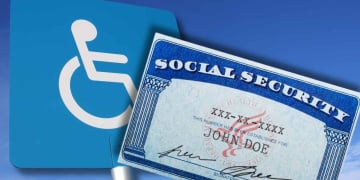If you thought filing your taxes late left you out of the game, we have good news: you could still have money waiting for you. Although the traditional deadline for filing tax returns was April 15, many people who were late can still claim their refunds.
That’s right, the IRS isn’t closing the door as quickly as it seems, and in some cases, you could have up to three years to recover the money that’s legally yours. Want to know how to do it and if you qualify? We’ll tell you everything below.
June tax refunds: Will you be one of the lucky ones?
Electronic federal returns filed between May 4 and May 11, 2025, will receive refunds between May 26 and May 31. This deadline applies to taxpayers who opted for direct deposit and whose returns were accurate. The IRS processes these cases in approximately 21 days according to established protocols.
Taxpayers with tax obligations who filed after May 11 will receive payments during June. For example, returns accepted around May 12 would receive direct deposits between June 2 and 6. These deadlines depend on the processing times of each bank. There are no exceptions to this standard procedure.
Paper returns or physical checks take between four and eight weeks to process. Credits such as the EITC and ACTC generate additional delays due to verification. Taxpayers in natural disaster areas like Arkansas will also experience similar delays during June.
Late filing of returns: What are the consequences?
Filing after April 15th does not incur penalties if a refund is expected. The IRS does not penalize late returns when the balance is in favor of the taxpayer. Penalties only apply if there was an outstanding debt that was not paid or filed on time. This tax principle is documented in current regulations.
Taxpayers have three years from the original deadline to claim refunds. For tax year 2024 returns filed in 2025, the deadline expires in April 2028. This timeframe allows for the regularization of outstanding situations without losing entitlements.
Late returns are processed in the order they are received. Electronic returns maintain the usual 21-day refund processing time. Paper returns require a 4-8 week processing time, with no changes to the procedure.
Summary of requirements for claiming your tax refund
To claim your tax refund, the most important thing is to have the documents that support your income and deductions on hand. You’ll need your W-2 forms if you’re employed, your 1099 forms if you’re self-employed or receive additional income, and any proof of deductible expenses like donations or educational costs. Don’t worry if you don’t have them all in physical form; a clear or digital copy will also work.
Also, make sure you have your current Social Security number (SSN) or ITIN, as this is your tax identification number. If you’re filing jointly, you’ll need your spouse’s SSN. Also, make sure you correctly define your marital status (single, married, etc.), as it affects significant calculations. If you used tax preparation services, keep a copy of your final return for comparison purposes. This will ensure your refund is processed smoothly!




